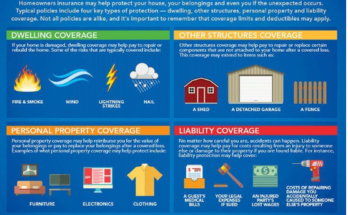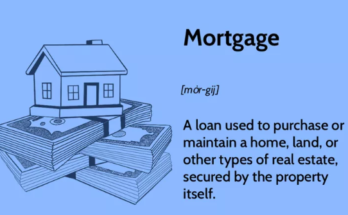Home Insurance for First-Time Buyers: Tips and Recommendations
Purchasing your first home is an exciting milestone, but it also comes with a host of responsibilities. One of the most important steps in protecting your investment is obtaining home insurance. For first-time buyers, navigating the world of home insurance can be daunting. This review aims to provide comprehensive tips and recommendations to help you understand the ins and outs of home insurance, ensuring you make informed decisions that protect your new home.
What is Home Insurance for First-Time Buyers?
Home insurance is a type of property insurance designed to protect your home and personal belongings from various risks, including fire, theft, vandalism, and natural disasters. For first-time buyers, it serves as a crucial safety net that can safeguard your investment and provide peace of mind.
Types of Home Insurance Policies
- HO-1 (Basic Form): This policy covers specific perils like fire, lightning, and theft. It’s a bare-bones option often not recommended for most homeowners.
- HO-2 (Broad Form): This policy covers more perils than HO-1, including additional risks like falling objects and the weight of snow or ice.
- HO-3 (Special Form): The most common type of home insurance policy, HO-3 covers all perils except those explicitly excluded (like flooding or earthquakes).
- HO-4 (Renters Insurance): If you’re renting your home, this policy protects your personal belongings rather than the structure itself.
- HO-5 (Comprehensive Form): This provides the broadest coverage for both the home and personal property, typically available for newer homes.
Understanding these types of policies helps first-time buyers select the right coverage for their specific needs.
How Home Insurance for First-Time Buyers Works
Home insurance works by providing financial protection in the event of covered damages or losses. When you purchase a home insurance policy, you agree to pay a premium—usually monthly or annually—in exchange for coverage against specific risks.
Key Components of Home Insurance
- Premiums: The amount you pay for coverage. Premiums are influenced by various factors, including the home’s location, age, and the amount of coverage chosen.
- Deductibles: The amount you must pay out-of-pocket before your insurance kicks in. Higher deductibles typically lower your premium but mean more significant costs in the event of a claim.
- Coverage Limits: The maximum amount your policy will pay for covered losses. It’s essential to choose coverage limits that accurately reflect the value of your home and belongings.
Claims Process
In the event of damage or loss, you file a claim with your insurance provider. They will assess the situation and determine if the loss is covered under your policy. If approved, you will receive compensation based on your coverage limits minus your deductible.
Features of Home Insurance for First-Time Buyers
When evaluating home insurance options, several key features can significantly impact your experience and coverage:
1. Dwelling Coverage
This protects the physical structure of your home against covered risks. It typically includes the main residence and any attached structures, like garages.
2. Personal Property Coverage
This coverage protects your personal belongings, including furniture, electronics, and clothing, from theft or damage. It’s important to document your belongings to ensure adequate coverage.
3. Liability Coverage
Liability coverage protects you from claims arising from injuries or damages that occur on your property. This is crucial for first-time buyers who may host guests or have children playing in the yard.
4. Additional Living Expenses (ALE)
If your home becomes uninhabitable due to a covered loss, ALE helps cover living expenses like hotel stays and meals until your home is repaired.
5. Optional Coverages
- Flood Insurance: Not typically included in standard policies; essential for those in flood-prone areas.
- Earthquake Insurance: An additional policy for those living in seismically active regions.
- Home Business Coverage: For first-time buyers running a business from home, this coverage can protect business-related equipment and liability.
Understanding these features helps first-time buyers tailor their policies to meet their specific needs.
Pros of Home Insurance for First-Time Buyers
| Pros | Description |
|---|---|
| Financial Protection | Covers the cost of damages and losses, safeguarding your investment. |
| Liability Coverage | Protects against lawsuits and medical expenses for injuries on your property. |
| Peace of Mind | Knowing you have coverage allows for stress-free home ownership. |
| Mortgage Requirement | Many lenders require insurance for approval, ensuring you meet financing conditions. |
| Optional Add-Ons | Flexibility to customize coverage with additional policies based on needs. |
Cons of Home Insurance for First-Time Buyers
| Cons | Description |
|---|---|
| Cost of Premiums | Monthly or annual premiums can be a significant expense for first-time buyers. |
| Complex Terms | Insurance policies can be confusing, making it challenging to understand coverage. |
| Exclusions | Some perils may not be covered, leading to gaps in protection. |
| Deductibles | Higher deductibles can mean out-of-pocket costs in case of a claim. |
| Policy Limits | Coverage limits might not fully cover high-value items or unique structures. |
Home Insurance for First-Time Buyers: Alternatives
For those considering alternatives to traditional home insurance, the following options may be worth exploring:
| Alternative | Description |
|---|---|
| Renters Insurance | For those not purchasing but renting, it covers personal property and liability. |
| Condo Insurance | Specifically designed for condo owners, covering personal property and structural improvements. |
| Landlord Insurance | For first-time buyers who plan to rent out their property, protecting against tenant-related risks. |
| Umbrella Insurance | Provides additional liability coverage beyond standard home insurance policies. |
| Specialized Insurance | For unique properties, such as historic homes or vacation rentals, tailored policies may offer better protection. |
Conclusion and Verdict: Home Insurance for First-Time Buyers
Navigating home insurance as a first-time buyer can seem overwhelming, but understanding the basics and the available options can significantly ease the process. Home insurance is not just a financial safety net; it’s an essential component of responsible homeownership.
By carefully assessing your needs, comparing quotes, and understanding the features and limitations of various policies, you can choose the right coverage for your new home. Investing time and effort into this decision will pay off by protecting your property and providing peace of mind for years to come.
FAQs: Home Insurance for First-Time Buyers
- What factors affect my home insurance premium?
Premiums are influenced by factors such as the home’s location, age, and condition, as well as your claims history and credit score. - Is home insurance required for first-time buyers?
While not legally required, most lenders require proof of insurance before approving a mortgage. - How can I lower my home insurance costs?
You can reduce premiums by bundling policies, raising deductibles, and maintaining a good credit score. - What should I do if I need to file a claim?
Contact your insurance provider, document the damages, and follow their claims process to ensure timely resolution. - Can I change my home insurance policy later?
Yes, most insurance policies allow for adjustments. If your coverage needs change, you can modify your policy accordingly.
This comprehensive review provides first-time buyers with essential insights into home insurance, from understanding policies to practical tips for selecting the right coverage. By following these recommendations, new homeowners can secure their investments and enjoy the benefits of homeownership with confidence.



